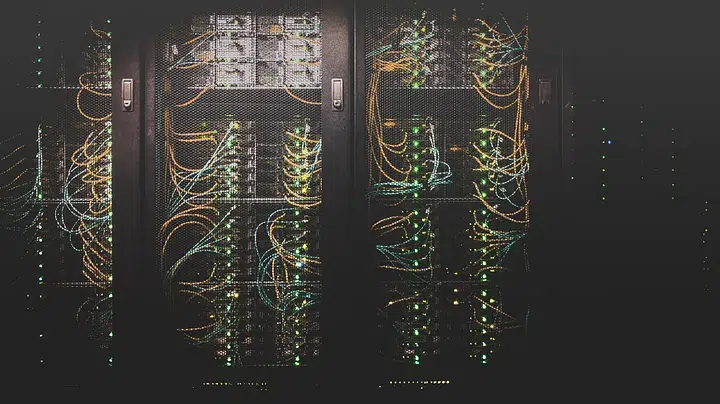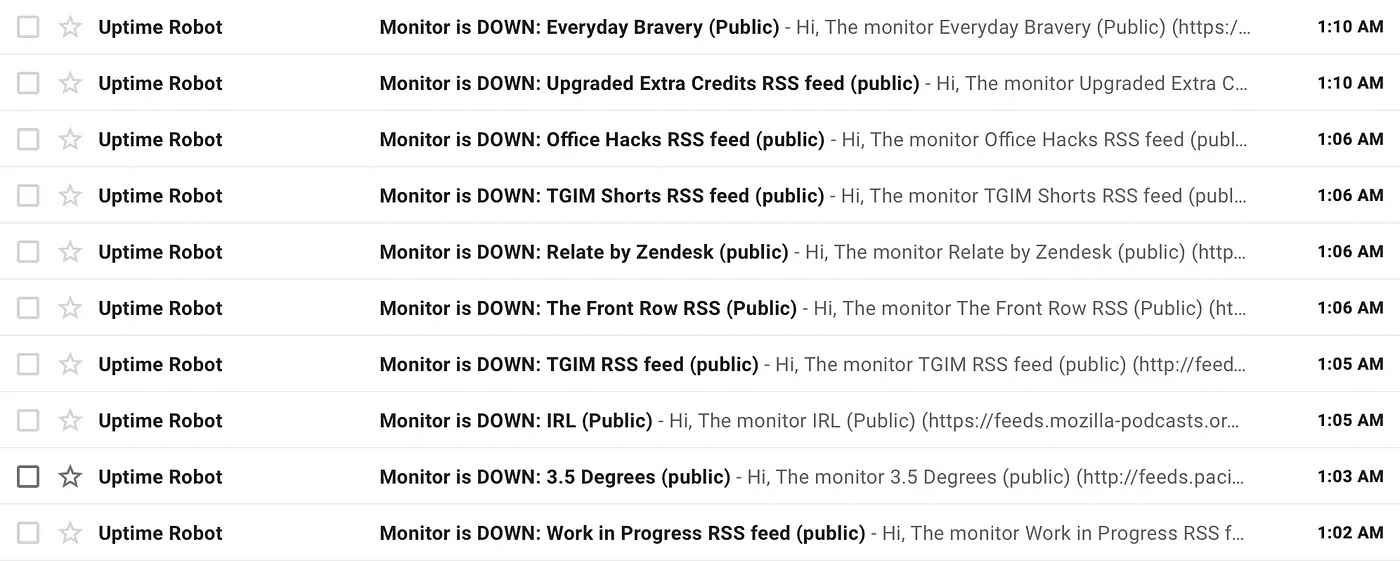Disaster-proofing your podcast feed

If you want a direct relationship with your podcast listeners, it’s important to own and control your podcast feed.
This week, I got a good reminder why.
It all started early Wednesday morning with a slew of notifications in my inbox:

Almost all our podcast feeds went offline because of hardware and network issues at our third-party feed hosting vendor, FeedPress.
This is a big deal. If your podcast feed goes down, your show goes down. Podcast apps can’t check for new releases, listeners may not be able to download episodes, and if your feed remains offline too long, you risk being kicked out of podcast directories. Not good.
Wednesday’s FeedPress outage could have been a show-stopper for us.
But it wasn’t. Here’s why…
We were prepared for this
The canonical RSS feeds for many of our clients’ shows live on a domain that we own and control. For example:
https://feeds.paccontstg.wpengine.com/choiceologyhttps://feeds.paccontstg.wpengine.com/commandlineheroeshttps://feeds.paccontstg.wpengine.com/threeandahalfdegrees
Other clients’ shows live on their own podcast-specific subdomains, such as:
https://feeds.hackablepodcast.com/hackablehttps://feeds.podcasts.dell.com/trailblazershttps://feeds.mozilla-podcasts.org/irl
It’s an important technical distinction: we own the domain names where our public RSS feeds live, instead of hosting them on someone else’s domain (e.g. feedpress.me or feeds.simplecast.com or rss.art19.com).
This requires more upfront work, but it’s worth the trouble.
If we ever want to switch hosting providers, or try out a new measurement service, or if our feed hosting company goes offline for several hours… we’re in control, and not at the mercy of a third-party vendor.
How we got our feeds back online
FeedPress was down for several hours. But because we own feeds.paccontstg.wpengine.com, we were able to get our public feeds back up before FeedPress’s service was restored.
How?
I spun up a quick Google Cloud App Engine project to host static copies of our shows’ feeds. After generating an SSL cert and making a quick CNAME switcheroo, we had a perfectly viable (albeit temporary) read-only FeedPress stand-in ready to go. During the FeedPress outage it ran for ~90 minutes and delivered 4GB+ worth of sweet, sweet XML… before FeedPress’s service came back online:

The moral of the story
This story isn’t really about FeedPress. And it’s not about the set of tools we used to get our feeds back online.
The point is ownership and control.
Network issues happen. Servers go down. Hosting companies come and go.
Ask yourself:
- What would happen if my show’s hosting company went offline tomorrow?
- What would happen if I wanted to switch hosting providers, but my old host refused to set up a feed redirect?
- What will happen when Google shuts down FeedBurner?
Remember: If you don’t own your feed, you don’t own your show.
Sign up for the Pacific Content Newsletter: audio strategy, analysis, and insight in your inbox. Once a week.
